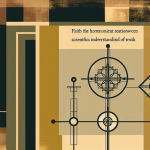The Meaning of the Eucharist: A Deep Dive into Its Significance
In the heart of Christian worship lies the Eucharist, a sacred rite that has profound spiritual significance. Often referred to as Holy Communion or the Lord’s Supper, the Eucharist is more than just a ritual; it embodies the essence of faith, community, and the deep connection between believers and Christ. This blog post will explore the meaning of the Eucharist, its biblical foundations, historical development, and its transformative impact on Christian life today.
Understanding the Eucharist in Christian Tradition
The Eucharist is rooted in ancient Jewish practices and represents the culmination of salvation history as understood by Christians. Derived from the Greek word “eucharistia,” which means “thanksgiving,” the Eucharist is often celebrated with deep gratitude for Christ’s sacrifice.
Biblical Foundations of the Eucharist
The origins of the Eucharist can be traced back to the Last Supper, where Jesus broke bread and shared wine with His disciples, proclaiming that they were His body and blood. This foundational event is recorded in the Gospels of Matthew, Mark, and Luke, as well as in Paul’s first letter to the Corinthians.
- Matthew 26:26-28 states: “While they were eating, Jesus took bread, and when he had given thanks, he broke it and gave it to his disciples, saying, ‘Take and eat; this is my body.’ Then he took a cup, and when he had given thanks, he gave it to them, saying, ‘Drink from it, all of you. This is my blood of the covenant, which is poured out for many for the forgiveness of sins.'”
These powerful words emphasize the transformative nature of the Eucharist as both a remembrance and a participation in Christ’s sacrificial love.
The Symbolism of the Eucharist
The Eucharist is rich in symbolism, serving not only as a memory of the Last Supper but also as a celebration of the resurrection. The bread represents the body of Christ, while the wine symbolizes His blood. Together, these elements signify the New Covenant established through Jesus’ passion, death, and resurrection.
-
Bread as the Body of Christ: In early Christian thought, the bread signifies nourishment, sustenance, and unity. It reminds believers that they partake in a shared faith grounded in the reality of Christ’s presence.
-
Wine as the Blood of Christ: The wine signifies life and sacrifice. Jesus’ identification of the wine as His blood not only invites believers into His death but also assures them of the promise of eternal life.
-
Communion and Community: The Eucharist fosters a sense of community among believers. By sharing in the body and blood of Christ, participants affirm their connection not only to Christ but also to one another, emphasizing the importance of unity within the church.
Historical Development of the Eucharist
The practice of the Eucharist has evolved significantly throughout Christian history. Understanding its historical journey offers insights into its current practice and meaning.
Early Church Practices
In the early church, the Eucharist was celebrated in homes and was integral to the fellowship of believers. The Didache, an early Christian treatise, outlines some of the rituals surrounding the Eucharist, emphasizing a communal aspect.
The Eucharist in the Middle Ages
During the Middle Ages, the Eucharist became a central rite in the liturgical life of the church. The doctrine of transubstantiation, which asserts that the bread and wine become the actual body and blood of Christ during the Mass, was formally articulated by the Catholic Church. This belief deepened the reverence for the Eucharist and established it as a fundamental aspect of Catholic worship.
The Reformation and Eucharistic Views
The Protestant Reformation brought about diverse interpretations of the Eucharist. Reformers like Martin Luther and John Calvin offered alternative understandings of Christ’s presence in the Eucharist, leading to significant theological debates. While some denominations emphasize a symbolic view, others maintain a belief in a real presence, albeit differing from the Catholic understanding.
The Eucharist Today: Spiritual Nourishment and Renewal
In contemporary Christian practice, the Eucharist remains a vital component of worship. Its meaning today can be described through several key themes that resonate with believers.
Spiritual Nourishment
The Eucharist serves as a profound source of spiritual nourishment. For many, partaking in the bread and wine is a moment of personal connection with Jesus Christ. It is in this sacred meal that believers find strength, hope, and renewal for their spiritual journeys. Regular participation is seen as essential for spiritual growth and maintaining a relationship with God.
A Call to Community Service
The Eucharist is not merely an individual experience; it is a call to community. As believers partake in this sacrament, they are reminded of their commitment to live out the teachings of Christ. The act of sharing bread and wine extends beyond the ritual itself; it inspires acts of charity, love, and service in the world. The Eucharist compels Christians to respond to the needs of those around them, embodying Christ’s love in their actions.
The Eucharist in Ecumenical Dialogue
As global Christianity continues to grow and diversify, the meaning of the Eucharist plays a crucial role in ecumenical dialogue. Different denominations may have varying beliefs about the Eucharistic presence and its significance, yet they all agree on the importance of unity in Christ. Discussions around shared communion practices aim to bridge theological gaps, fostering a spirit of collaboration and understanding among Christians.
Preparing for the Eucharist: A Personal Journey
Participating in the Eucharist is both a communal act and a personal journey. As individuals prepare to receive the sacraments, it is essential to approach this sacred ritual with reverence and reflection.
Self-Examination and Repentance
Before celebrating the Eucharist, practitioners are often encouraged to engage in self-examination and repentance. This practice aligns with Paul’s teachings in 1 Corinthians 11:28, which states, “Everyone ought to examine themselves before they eat of the bread and drink from the cup.” This internal reflection aids in recognizing one’s need for forgiveness and reconciliation with both God and the community.
An Attitude of Gratitude
Coming to the Eucharist with an attitude of thanksgiving enriches the experience. Recognizing the grace bestowed upon us through Christ’s sacrifice fosters a deeper appreciation for the ritual’s meaning. As believers express gratitude for God’s love, their hearts become open to the transformative power of the Eucharist.
Conclusion: Embracing the Meaning of the Eucharist
The meaning of the Eucharist transcends its ritualistic practice; it encapsulates the essence of Christian faith and serves as a reminder of Jesus’ enduring presence. Through this sacred meal, believers experience spiritual nourishment, deep community connections, and a commitment to live out the teachings of Christ.
As Christians continue to engage in the Eucharist, they are invited to reflect on its profound significance in their lives, embracing the call to love, serve, and grow in faith. For many, the Eucharist remains a powerful testament to God’s unending grace and a vital source of spiritual strength.
In celebrating the Eucharist, Christians join in a timeless tradition that reminds them of their identity as followers of Christ and their call to share His love with the world. Whether in a grand cathedral or a humble gathering, the significance of the Eucharist resonates, inviting believers into a deeper relationship with God and one another.




